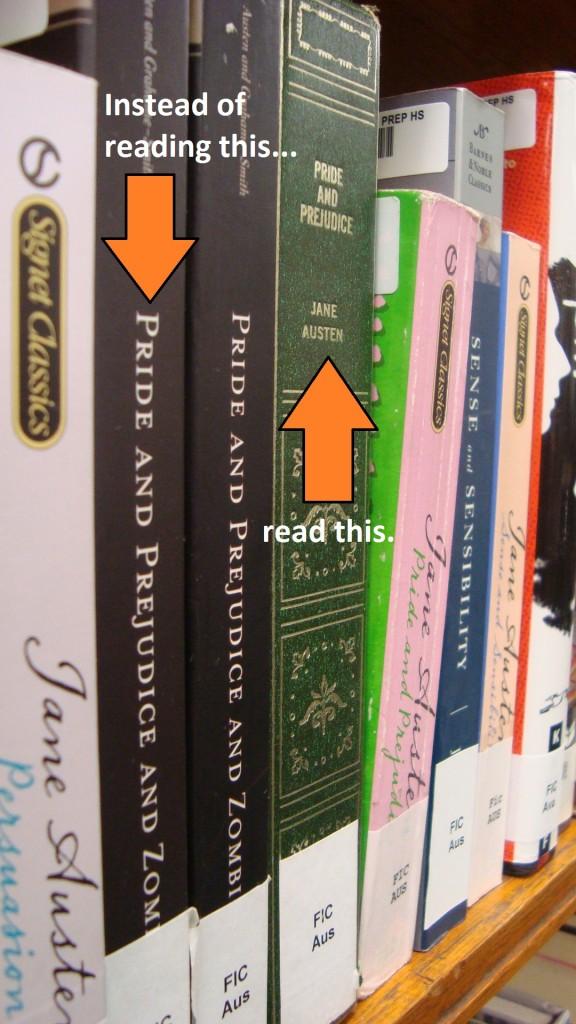For summer reading this year, seniors read Pride and Prejudice by Jane Austen.
For those who haven’t read it (including underclassmen and severely procrastinating seniors) it is a novel about a young woman named Elizabeth Bennet and her relationship with Mr. Darcy. Though there are definitely some romantic aspects, this is not just some silly love story.
Those expecting a complete summary of the novel will be disappointed. I’ve already written two essays, an FRQ, and a Major Works Study Form, and frankly, I’m tired of extracting important quotes and analyzing satire. I have, however, read Pride and Prejudice twice, watched the BBC adaptation twice, and generally become addicted. I like to consider myself a decent source of recommendation.
For those who do love a good romance, Pride and Prejudice does not disappoint. Though the regency era rules apply (basically, no touching a prospective spouse unless you’re dancing) there is plenty of emotion and plot twist to satisfy the love lover. Pride and Prejudice, however, has so much more depth than the traditional boy-meets-girl novel. It isn’t only about love; it’s about, well, pride and prejudice. Speaking of Elizabeth, Mr. Darcy says:
She is tolerable, but not handsome enough to tempt me; and I am in no humor at present to give consequence to young ladies who are slighted by other men.
Elizabeth judges Mr. Darcy on her first impression of him as a man who was elitist and rude (or proud), and Austen criticizes this premature judgment throughout the novel by (spoiler alert) making him out to be a very good person.
Jane Austen fills the book with clever humor that criticizes the traditionalists of the time period who believed that marriage should be a woman’s primary prospect in life. She does this through characters like Mrs. Bennet (Elizabeth’s mother), whose view of life is basically summed up in the first sentence:
It is a truth universally acknowledged that a single man in possession of a good fortune must be in want of a wife.
Most people don’t have that view today, obviously, but that’s what makes Jane Austen special: She defied the common views of her time period. She uses a strong, independent woman who often goes against tradition as her main character. Even though the language seems a bit archaic at times (because the novel was published almost 200 years ago), the concepts that Austen puts forth still apply today. People can defy tradition, be individual, follow their dreams. People have imperfections, and sometimes, we need to get past that. People are…interesting.
Obviously, I love this book. I probably do not have the same point of view as other teenagers, but I do hope that even though Pride and Prejudice is old, people my age will look at it in a favorable light. I would like to recommend The Lizzie Bennet Diaries, a vlog series on YouTube. It is a great modern adaptation of Pride and Prejudice that puts the story into easily understandable language and situation, and I really enjoy watching it. The first episode can be found at http://www.youtube.com/watch?v=KisuGP2lcPs, but there is supplemental information (through posts on social media sites) at http://www.lizziebennet.com/ (go to the story section).












rdow • Oct 3, 2012 at 12:10 pm
I would like to publicly apologize to Mrs. K. Ferguson for using the word “prideful” in this article. I have fixed it. 🙂
Justin Schmidt • Sep 29, 2012 at 6:40 am
Pride and Prejudice and Zombies! I think I need to read that next time!
rdow • Oct 3, 2012 at 12:03 pm
*Sigh.* I guess I can’t tell you NOT to read it because I haven’t read it myself…